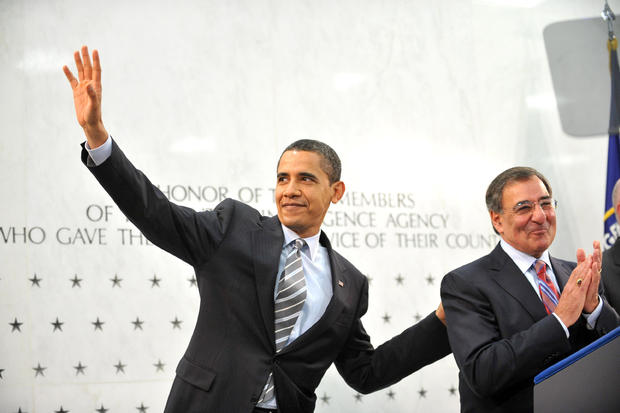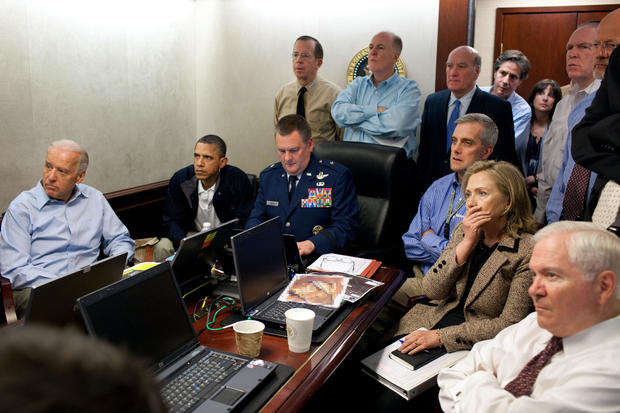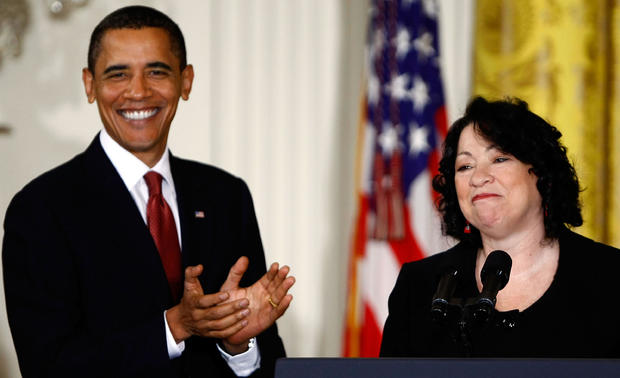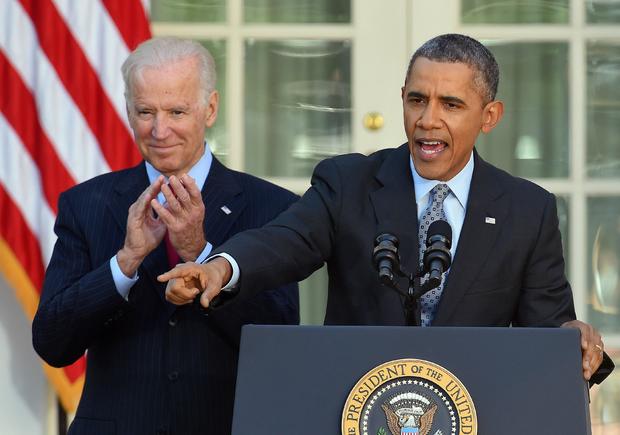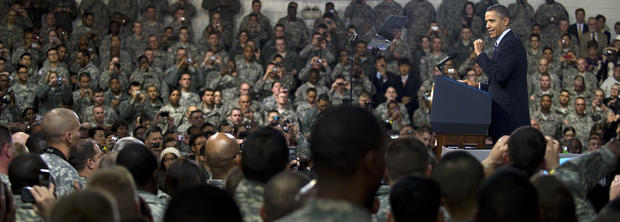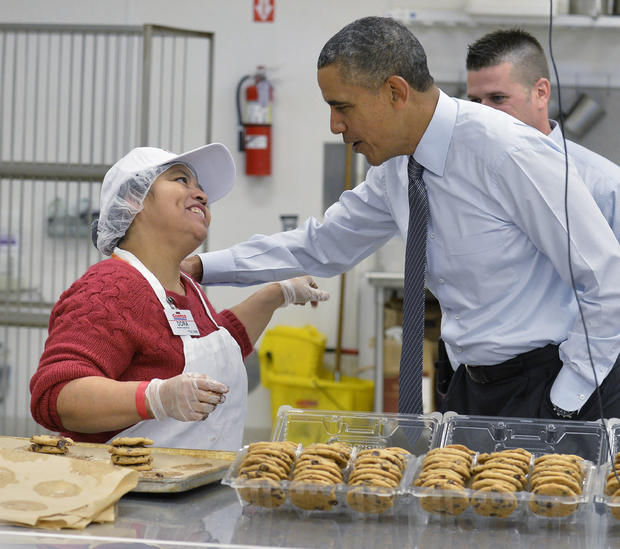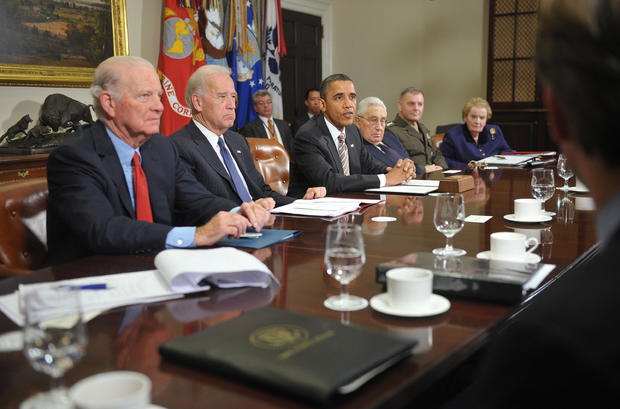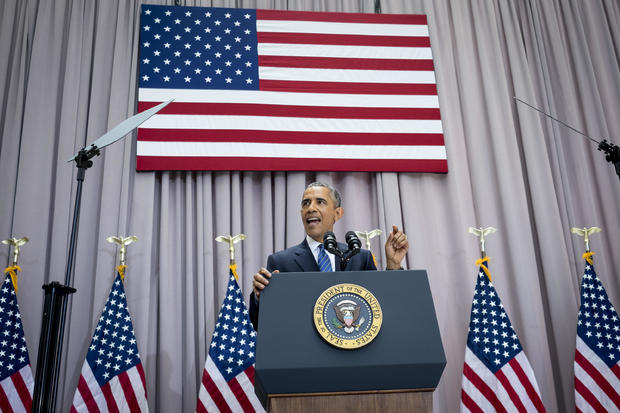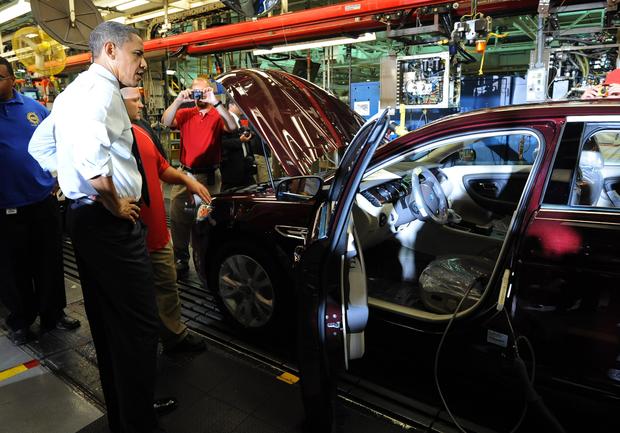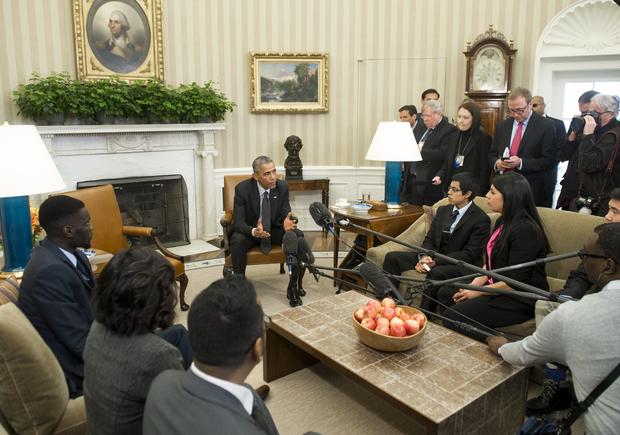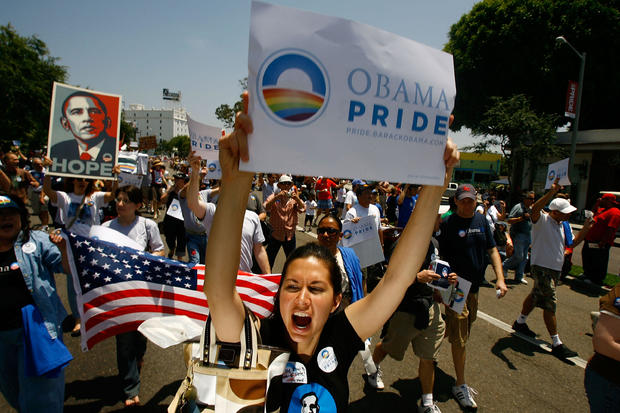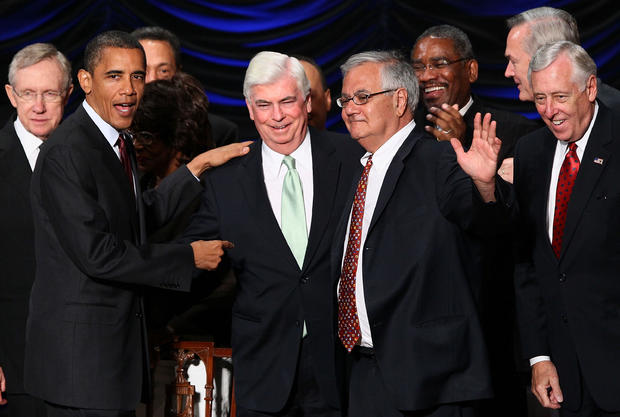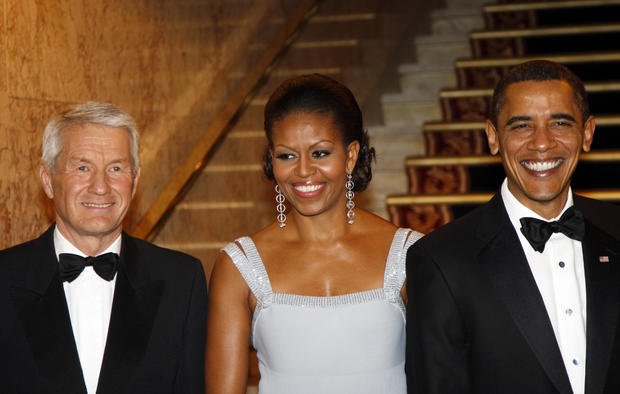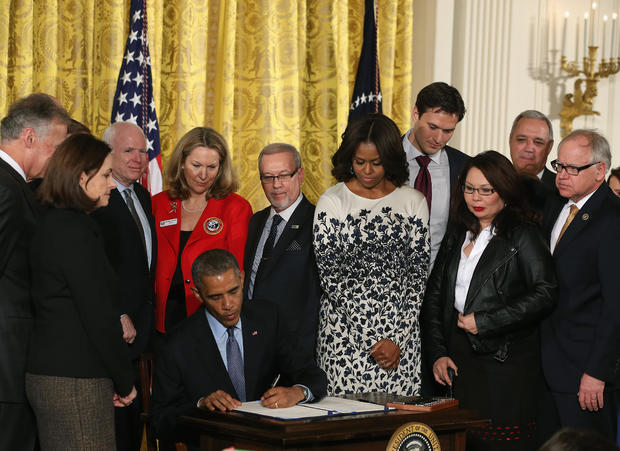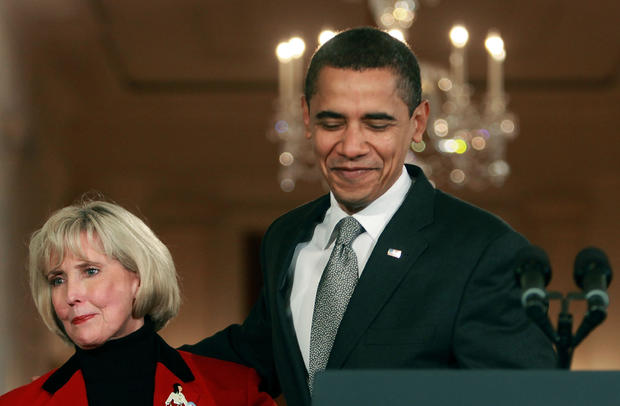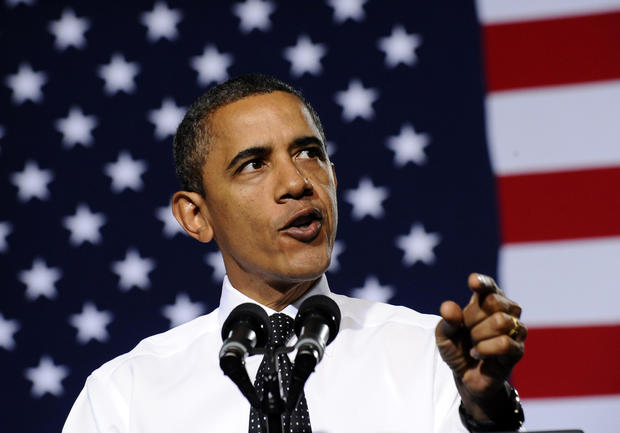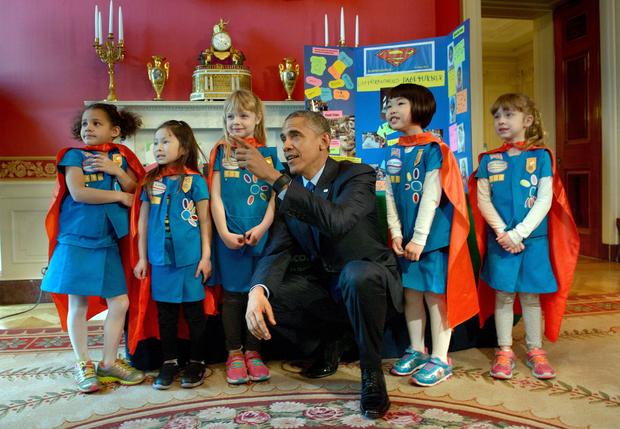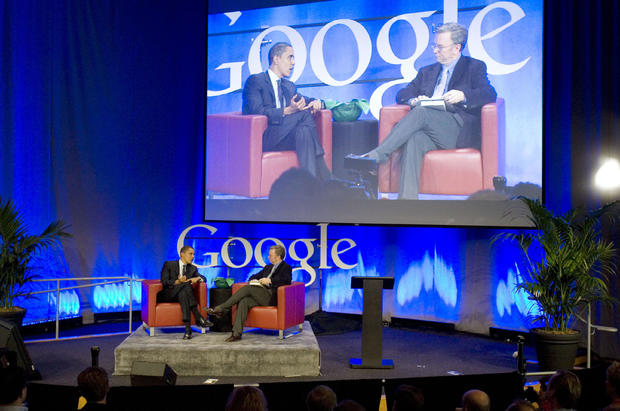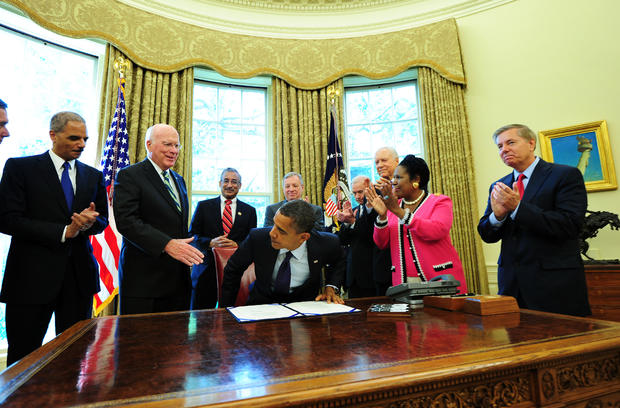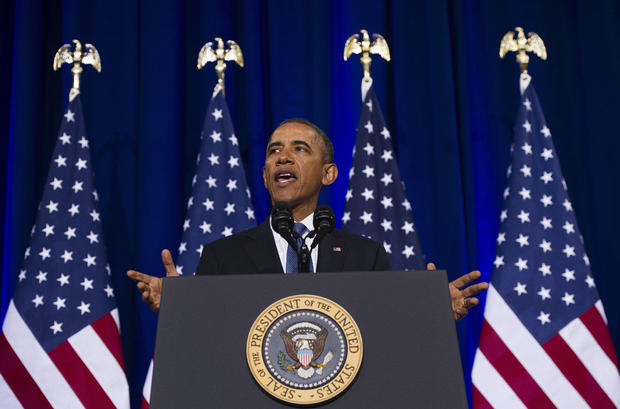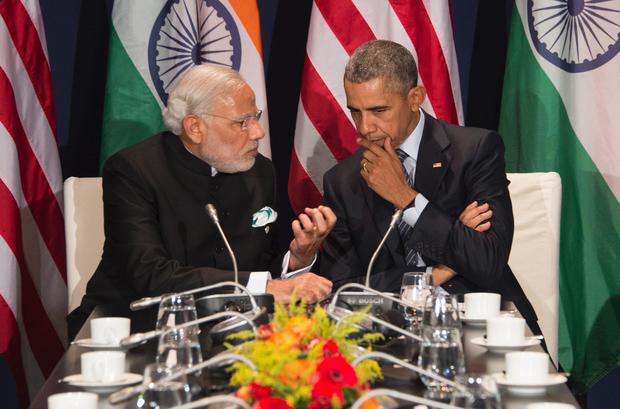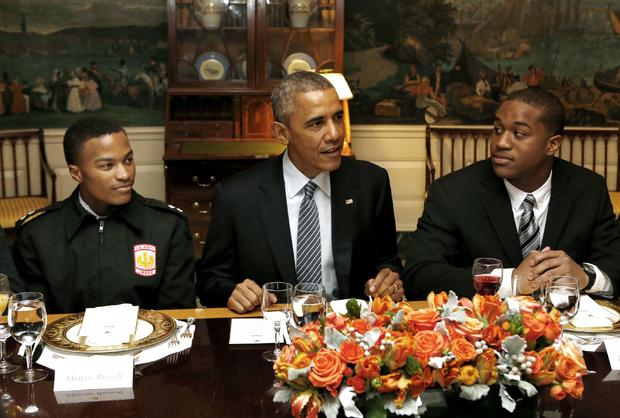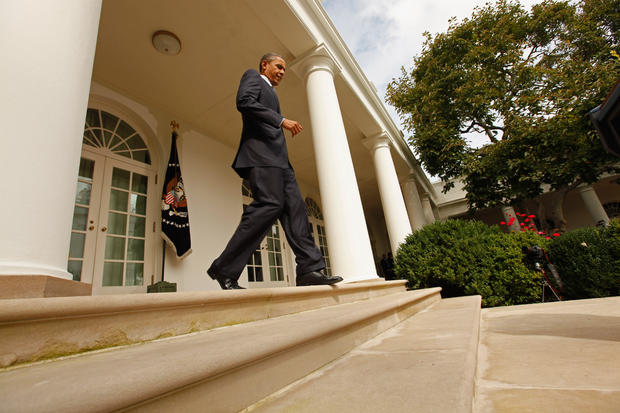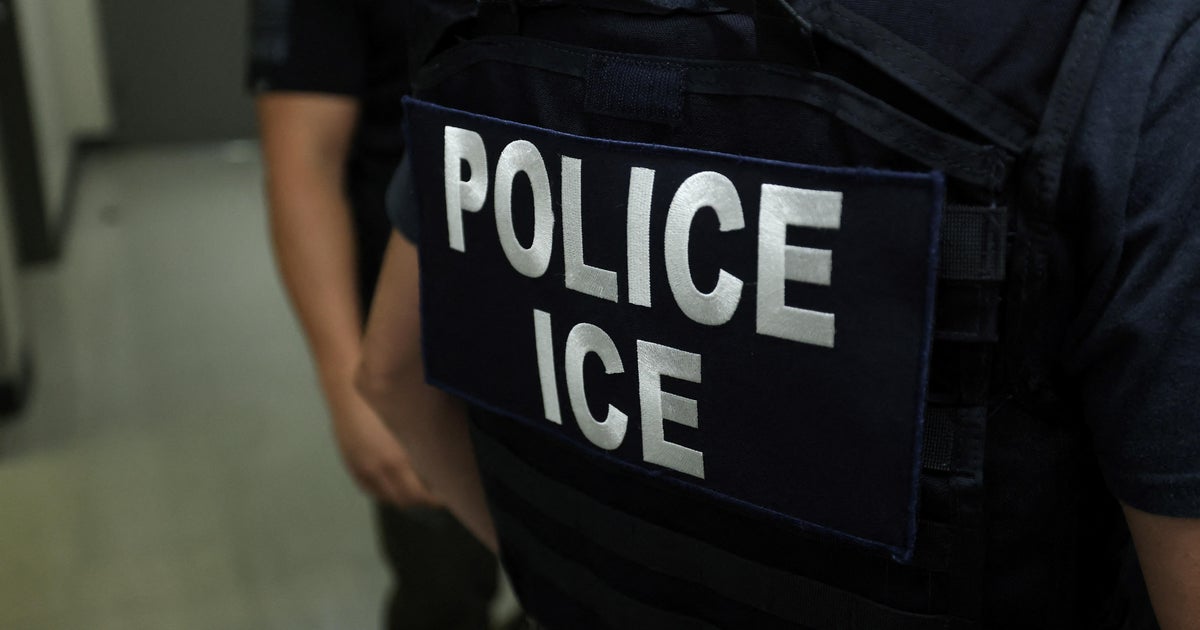Barack Obama's legacy
In his eight years in office, President Obama left his mark on many different aspects of American life and pushed through policy changes affecting everything from our health care to the prospects of a Cuban vacation.
Being the first black president presented a unique set of challenges for Mr. Obama, including years of implications that his birth certificate was somehow counterfeit. During his presidency, race relations suffered a number of setbacks. But a generation of young African-Americans grew up seeing a role model who looks like them in the highest public office.
Osama Bin Laden
In May 2011, President Obama authorized the raid on a compound in Pakistan that led to the killing of Al-Qaeda founder Osama Bin Laden.
First Hispanic Supreme Court justice
In 2009, President Obama was presented with his first opportunity to appoint a Supreme Court justice, and he chose Sonia Sotomayor, the nation’s first Latina to serve on the high court and only the third female Supreme Court justice ever.
Affordable Care Act
Despite bitter controversy, a Supreme Court case, and a continued pledge by Republicans to repeal the Affordable Care Act, about 20 million Americans gained health insurance coverage between 2010 and 2016 through the program known as Obamacare.
Repeal of Don't Ask Don't Tell
President Obama has been a vocal supporter of equal representation of the LGBT community since before he took office. In 2010, he signed the Don’t Ask Don’t Tell Repeal Act, allowing lesbian, gay and bisexual members of the armed forces to serve openly.
Fight to raise minimum wage
President Obama pushed to raise the federal minimum wage, but was blocked by opposition from the Republican-held House of Representatives. Mr. Obama signed an executive order in 2014 to set the minimum wage for government contractors at $10.10.
New START treaty
In April 2010, Mr. Obama and then-Russian President Dmitry Medvedev signed the New START (Strategic Arms Reduction Treaty), an agreement to reduce the number of strategic nuclear missile launchers by nearly half by 2018.
Iran nuclear deal
Though met with much criticism, the Iran nuclear deal limits Iran’s enrichment of uranium; creates a system for monitoring research facilities; and enables sanctions, should the deal be violated.
Rescue of the U.S. auto industry
Amid the turmoil of the Great Recession, the Obama administration provided the American auto industry with a multi-billion dollar bailout—massive loans to keep Chrysler and General Motors from folding.
In exchange, the companies made a commitment to develop fuel-efficient vehicles and modernize their business practices. Chrysler paid back its loan in 2011 and the federal government recouped most of the rest of the money it spent on the program by 2014.
Help for "DREAMers"
The Deferred Action for Childhood Arrivals or DREAM policy allowed undocumented immigrants who entered the United States as children to petition for deferred action on deportation proceedings. As of June 2016, more than 800,000 “DREAMers” had applied for the program.
Support of same-sex marriage
The Supreme Court ruled in 2015 that same-sex marriages were to be recognized in all jurisdictions.
President Obama spoke on the decision from the White House Rose Garden later that day, saying, “This ruling will strengthen all of our communities by offering to all loving same-sex couples the dignity of marriage across this great land.”
Dodd-Frank Wall Street reform
Though it’s come in for criticism from both the left and the right, the Dodd-Frank Wall Street Reform and Consumer Protection Act provided lawmakers with additional oversight of the financial industry and reined in some of the risky banking practices that led to the Great Recession.
Nobel Peace Prize
In 2009, just months after he took office, the Norwegian Nobel Committee announced that they would be awarding the Nobel Peace Prize to Barack Obama for strengthening international cooperation; being an activist for nuclear nonproliferation; and reaching out to Muslims in the United States and abroad.
Suicide Prevention for American Veterans Act
This measure to increase access to mental health care for American veterans was met with bipartisan support. The measure was unanimously passed in the House of Representatives and the Senate.
Lilly Ledbetter Fair Pay Act
The first bill Mr. Obama signed after taking office was the Lilly Ledbetter Fair Pay Act, which helps combat the gender wage gap by allowing a longer period of time for equal-pay lawsuits to be filed.
Normalization of relations with Cuba
In 2014, the news broke that the United States would begin a normalization of relations with Cuba. The negotiations had been secretly conducted with the help of Pope Francis and the Canadian government, and travel and trade restrictions were quickly relaxed.
In March of 2016, President Obama visited Cuba and caught a baseball game between the Tampa Bay Rays and the Cuban National Team.
Federal student loan reform
In 2010, President Obama fought for an overhaul of the federal student loan market. The new policy ended decades of paying private banks to lend the government’s money to college students.
Bipartisan support for Every Student Succeeds
The Obama administration’s replacement for the No Child Left Behind Act passed with bipartisan support. One major change from the previous K-12 education policy was the modifications to the mandatory standardized testing system.
Support for net neutrality
President Obama supported policies that promote a free and open internet. The main principle of net neutrality: Data companies and service providers should not be able to charge companies for faster delivery of their services to customers.
Fair Sentencing Act
The Fair Sentencing Act, signed by President Obama in 2010, reduced the legal disparity between sentencing for possession of crack cocaine and possession of powder cocaine. It also jettisoned several provisions of the War on Drugs that disproportionately targeted people of color.
Mr. Obama has also commuted the sentences of more than 1,100 people, mostly for nonviolent drug offenses.
He wrote in the Harvard Law Review: “These changes mean that I will be the first President in decades to leave office with a federal prison population lower than when I took office even as my Administration saw the rate of violent crime fall to its lowest point in decades.”
Limit for warrantless wiretaps
Though foreign and domestic surveillance by the NSA still takes place, Mr. Obama revamped the Foreign Intelligence Surveillance Act, increasing oversight and limiting the NSA’s practice of bulk-collection of data from citizens’ phone calls.
Fight against climate change
Under President Obama, the United States has worked to be a global leader in fighting climate change. In 2015, 194 countries signed onto the Paris Climate Agreement, an ambitious plan to reduce greenhouse gasses, develop clean energy initiatives, and reverse the effect of Earth’s rising temperature.
My Brother's Keeper
President Obama kickstarted a public-private partnership that supports the socioeconomic progress of young men of color. Since its launch, My Brother’s Keeper has raised over $1.5 billion in funding to help them develop skills to succeed at school and work.
Recession recovery
When Mr. Obama was sworn into office, the American economy was struggling through the worst economic downturn since the Great Depression.
Since then, the unemployment rate has dropped substantially and the economy has added jobs for 75 straight months.
